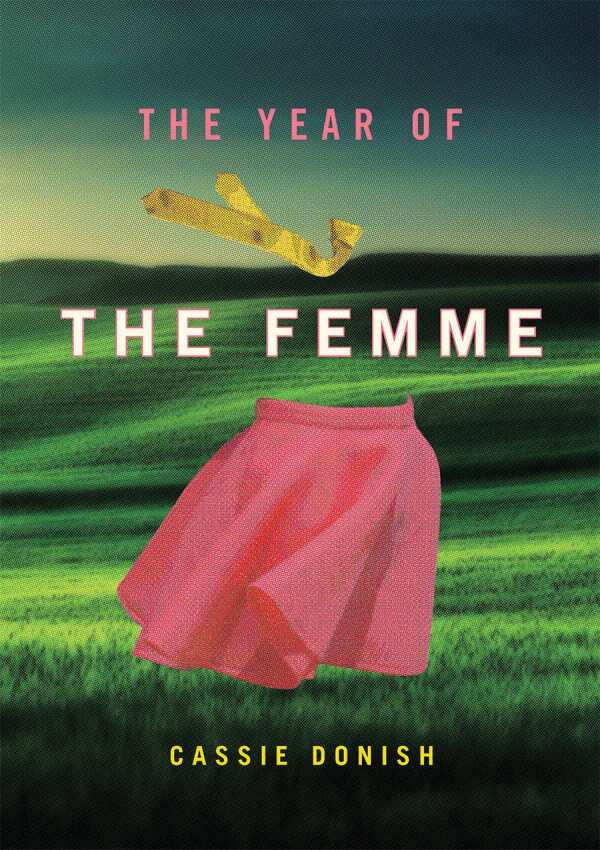The Year of the Femme
Elusive, elegant, and meditative, the poems in Cassie Donish’s The Year of the Femme resist traditional narratives, opting instead to accrue meaning by way of juxtaposition and repetition of language and images. Rife with nature and its temporal visuals, Donish’s poems illuminate a world charged with the precarious possibility of vulnerability in speech, remembrance, and relationships.
The book opens with a long poem made up of meditations on notions of the self, gender, and sexuality. In her musings, the protagonist
wonders when she’ll start saying what she is
She’s not sure what she is
There, at last, that is said.
This uncertainty drives into the next section, where she questions the origins of notions about gender, family, and mental illness. In “Desire and the Social” she sees
this longing is shaped by phrasing,
by passages of books, by scenes
in films, the hair in the eyes.
Desire—its shape and gender—is defined outside of the body, an idea the poems fight, particularly in the last section when two lovers choose to reveal their nontraditional desires.
In the midst of trying to articulate becoming, poems interrogate the impact of comprehensive nouns like family and sisters on the speaker. In “Tenderness,” Donish’s lines fold into each other, mimicking the way that family folds into itself in memories. A tenderness toward struggling people foreshadows other relationships that thread through the book as well.
The book’s language often suggests violence as a part of knowing: a leaf slit for eyes, the desire to split open the sea, and skin broken up. Throughout the book, a yearning to slip one’s skin proves essential. Donish feeds the tension between fear of and desire for self-expression.
Donish’s intimate and tactile poetry opens a way to understand the duality of the self and its sudden moments of being.
Reviewed by
Camille-Yvette Welsch
Disclosure: This article is not an endorsement, but a review. The publisher of this book provided free copies of the book to have their book reviewed by a professional reviewer. No fee was paid by the publisher for this review. Foreword Reviews only recommends books that we love. Foreword Magazine, Inc. is disclosing this in accordance with the Federal Trade Commission’s 16 CFR, Part 255.

